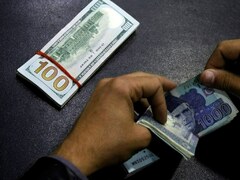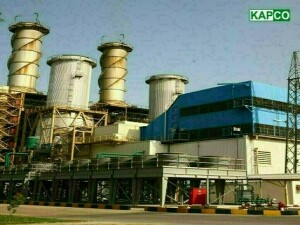Bulgaria's president reassured citizens on Sunday that their savings were safe and fully guaranteed by the state, in a message backed by the central bank and main political parties following a run on two major banks. The bank runs have stoked fears for the financial stability of the European Union's poorest member state and authorities are keen to show Bulgarians they are fully in control of the situation before banks reopen on Monday.
The central bank has said the runs on Corporate Commercial Bank (Corpbank) and First Investment Bank are part of a deliberate and systematic attempt to destabilise Bulgaria's banking system.
It has vowed to take all measures to protect citizens' savings.
"The money of citizens and companies invested in the banking institutions of Bulgaria are safe and guaranteed. The banks will continue to operate in a normal regime," Plevneliev told a news conference after more than four hours of talks with political party leaders, the finance minister and central bank chiefs.
The banking crisis has coincided with a period of political uncertainty. Prime Minister Plamen Oresharski's minority Socialist-led cabinet recently announced it would soon resign. It has agreed to a snap parliamentary election on October 5.
Plevneliev said he would dissolve parliament and appoint an interim government on August 6, after Oresharski's resignation, to steer Bulgaria until the election.
Bulgaria has launched a criminal investigation to track down those it believes have deliberately caused the bank runs by sending emails and mobile telephone text messages randomly to customers, inciting fears about the safety of their deposits.
Earlier on Sunday, the national security agency said it had so far detained five people suspected of involvement in the affair, though it later released one of them.
"We have enough resources and mechanisms to deal with any attempts at destabilisation. We stand behind every bank that is subject to attack," Plevneliev said.
"Bulgaria's banking system is stable, well-regulated and capitalised ... There is no banking crisis. There is a crisis of trust and a criminal attack. These need to be overcome and those responsible prosecuted to the fullest extent of the law."
Last weekend, the central bank took over Bulgaria's fourth largest lender, Corporate Commercial Bank (Corpbank), after customers, who were rattled by online and media reports of suspect deals involving the bank, rushed to withdraw their savings. The bank has denied any wrongdoing.
The run on Corpbank has shone a light on weak economic governance in Bulgaria. It joined the EU in 2007 but remains plagued by high-level graft which has prevented successive governments from enacting reforms to revive a sluggish economy.
Despite its political and economic problems, Bulgarian and international economists say the Balkan country of 7.5 million people is not in danger of an economic meltdown.
Bulgaria has one of the lowest levels of debt in the EU, its central bank is widely viewed as effective and well-run and the lev currency is tied to the euro via a currency board, which means it is shielded from turmoil in financial markets.
There is a broad national consensus in Bulgaria on the role of the board as a bulwark of stability. It was introduced in the mid-1990s after a financial crisis triggered hyper-inflation and wiped out many of the country's banks.
"The currency board is unshakable," Plevneliev said, adding it would remain until Bulgaria finally joins the eurozone.
BR100
15,103
Increased By
140.9 (0.94%)
BR30
42,619
Increased By
540.8 (1.29%)
KSE100
148,196
Increased By
1704.8 (1.16%)
KSE30
45,271
Increased By
438.2 (0.98%)






















Comments
Comments are closed.